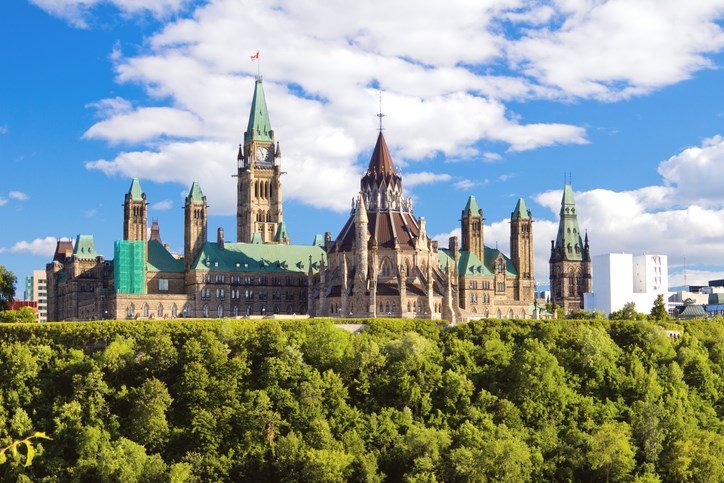One of the inherently selfish features of the modern parliamentary system is the ability of governments to call elections at the time of their choosing. The current federal administration will not be the last to capitalize on the weakness of an opposition leader to enhance its status.
We have had several examples of this modus operandi in this century, such as Jean Chrétien’s Liberals facing off early against Stockwell Day’s Canadian Alliance in 2000 (a contest that ended 41% to 26% in national voting percentages) or Stephen Harper and the Conservative Party achieving a majority mandate in 2011 with 40% of the vote, giving the New Democratic Party (NDP) its best showing in history with Jack Layton (31%) and the Liberal Party, under Michael Ignatieff, its worst (19%).
Over the past few months, it has been difficult for Conservative leader Erin O’Toole to garner momentum. British Columbians are familiar with this scenario, as it is eerily reminiscent of what happened to the BC Liberals in 2020: a leader who was the second or third choice of many members failing to motivate voters with a promise of change.
Asking voters if they want an election is not particularly useful, and it can be – as was the case for those who thought it proper to inquire before last year’s provincial election in British Columbia – exceedingly misleading. In the end, the BC NDP capitalized on what was then an extremely high level of public satisfaction on managing the COVID-19 pandemic (83% just before the writs were dropped).
The Justin Trudeau Liberals face a similar scenario. As we learned last week, the level of satisfaction with the federal government’s management of the pandemic stands at 61%, the highest observed since November 2020. An important component of the goodwill expressed by Canadians is connected to the vaccine rollout.
This month, Research Co. and Glacier Media found that 72% of Canadians are satisfied with the procurement of vaccine doses by the federal government, a 15-point increase since mid-May. The days of severe criticism related to shortages and supply appear to be long gone.
The fact that the first dose of the vaccine is now in the bodies of a majority of the country’s adults has also made more residents hopeful that a milestone promised by the Public Health Agency of Canada (PHAC) in December will be met.
The PHAC expected every willing Canadian to be inoculated against COVID-19 by the end of September 2021. This month, 74% of Canadians think the goal will be attained, up 15 points since March and 20 points since February. The possibility of a Thanksgiving celebration with friends and family is closer to fruition.
Perceptions on getting vaccinated have also shifted. This month, 88% of Canadians say they have already been inoculated (either with one or two shots) or plan to do so when their turn comes, up five points since May. This leaves 8% of Canadians (down five points) who “definitely” or “probably” will not get vaccinated and 4% (down one point) who are undecided.
From September 2020 to May 2021, the number of Canadians who said they would not get a COVID-19 shot fluctuated from 13% to 18%. July marks the first time that the proportion has dropped to single digits.
Provincial governments are also benefiting from the current state of affairs, with 73% of Canadians saying they are satisfied with both the vaccination plans and phases outlined by their province and the pace of vaccination efforts.
Still, as has been the case throughout the pandemic, some provinces are doing a better job connecting with residents on an emotional level. While 80% of Quebecers and 79% of British Columbians are happy with the pace of vaccination efforts, the proportion is lower among Albertans (68%) and Ontarians (62%). The differences in the proportion of vaccinated residents are not as dramatic among these four provinces.
As satisfaction with the vaccine rollout grows, our own behaviour is changing. Across the country, 70% of Canadians claim to wear a mask or face covering every time they go out, down from 75% in mid-May. Women (76%) and Canadians aged 55 and over (75%) are more willing to keep the face masks handy than men (65%) and Canadians aged 18 to 34 (66%).
With Canadians particularly buoyant about the end of the COVID-19 pandemic, the stage is set for a campaign where the Liberals would start as clear favourites to achieve a majority government. If this scenario materializes, the current prime minister will perfectly duplicate the start of his father’s tenure in Ottawa: a majority mandate in the first election (1968 and 2015), a minority in the second (1972 and 2019) and a return to majority two years later (1974 and 2021). •
Mario Canseco is president of Research Co.
Results are based on an online study conducted from July 9 to July 11 among 1,000 Canadian adults. The data has been statistically weighted according to Canadian census figures for age, gender and region. The margin of error, which measures sample variability, is plus or minus 3.1 percentage points, 19 times out of 20.



